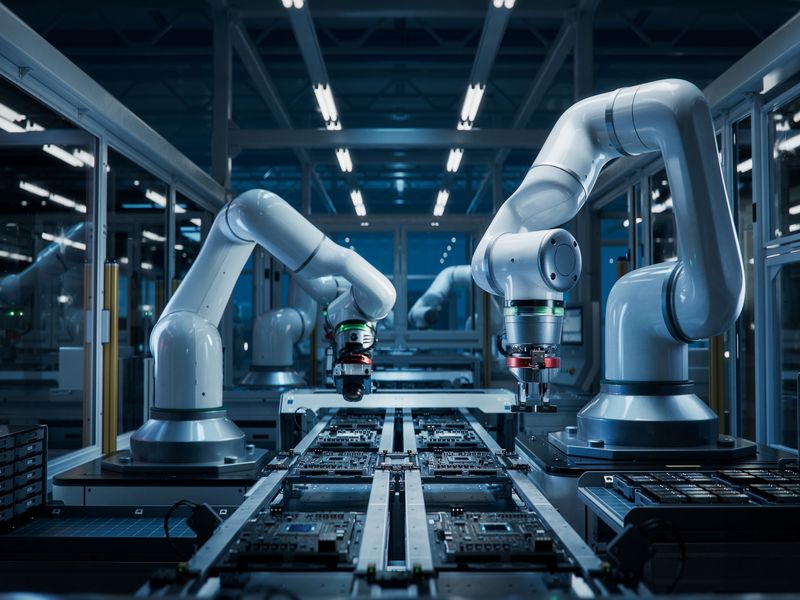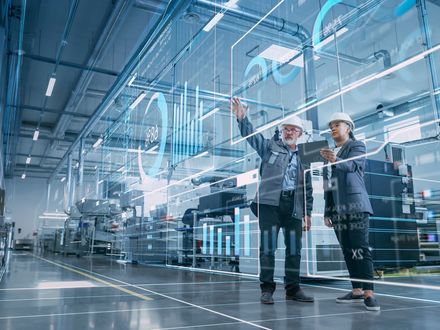The future of work in manufacturing: technology, talent and teamwork

The future of work in the manufacturing industry: technology, talent and teamwork
The manufacturing industry is on the cusp of a fundamental transformation. Not only because of technological innovations such as artificial intelligence and robotics, but also because of changing ways of working, new skills and a different view of collaboration. For engineers, HR managers, team leaders and entrepreneurs, it is crucial to look ahead: what will work look like in a sector that is becoming increasingly smarter, more digital and more people-oriented?
Artificial intelligence: not a replacement, but an enhancer
AI is increasingly being used in production environments — from visual inspection with machine learning to optimising production planning through algorithms. But AI is not a replacement for human brainpower. Engineers remain essential for asking the right questions, interpreting data and making choices that go beyond what a model predicts.
A good example is predictive maintenance: AI can indicate when a machine is likely to fail, but it is the engineer who decides whether and how to intervene. The future lies in collaboration between humans and algorithms, with AI automating repetitive tasks and engineers focusing on strategic and creative issues.
Robotics: collaborating instead of replacing
The rise of cobots — robots designed to work safely alongside humans — is changing the dynamics of the workplace. Instead of full automation, we are increasingly seeing a shared division of tasks: the robot lifts, assembles or sorts, while the engineer checks, adjusts and optimises.
This collaboration not only increases productivity, but also safety and ergonomics. Engineers are given the space to focus on process improvement, innovation and customer-oriented solutions. Companies that integrate robotics intelligently create a workplace where technology enhances human potential.
Continuous training: learning is not a luxury, but a necessity
Technology is changing faster than ever. What is cutting-edge today may be obsolete tomorrow. That is why continuous training is not a luxury, but a strategic necessity. Engineers must keep their knowledge up to date — from new materials and production techniques to digital tools and sustainability.
Companies that invest in learning programmes, internal academies or partnerships with educational institutions are building a future-proof workforce. Think microlearning, blended training and peer-to-peer knowledge sharing. Training is not just an HR issue, but a core component of innovation.
Digital transformation: software skills as a foundation
Modern engineers work not only with tools, but also with data. CAD software, simulation programmes, ERP systems and digital twins are part of their daily routine. Digital skills are just as important as technical knowledge.
The engineer of the future must be able to switch between physical processes and digital models. This requires training, but also a culture in which digital tools are embraced. Companies that integrate software into their processes — from design to production — gain speed, flexibility and insight.
Soft skills: crucial in a technology-driven environment
In a world full of technology, human skills are becoming even more important. Engineers increasingly work in multidisciplinary teams, interact with customers and need to be able to explain complex ideas clearly. Communication, collaboration, problem-solving skills and leadership are indispensable.
Soft skills determine how effectively a team functions, how quickly a project progresses and how well an engineer can adapt to change. Companies that recognise and develop these skills build resilient and innovative teams.
Hybrid working models: also in the manufacturing industry
Although the manufacturing industry is traditionally location-bound, we are seeing a shift towards hybrid working models.
Engineers who design, analyse or plan can easily work partly from home. Remote access to systems, digital collaboration tools and virtual meetings make this possible.
Hybrid working offers advantages: greater flexibility, higher job satisfaction and greater appeal to young talent. Of course, physical presence in the workplace remains important, but a smart mix of home and on-site working is becoming increasingly feasible — even in production environments.
What does this mean for you?
For engineers: stay curious, keep learning and develop your communication skills.
For companies: invest in technology and people. Because the future of work is hybrid, digital and human.
The manufacturing industry is changing. But one thing remains the same: it's all about craftsmanship, collaboration and thinking ahead.



